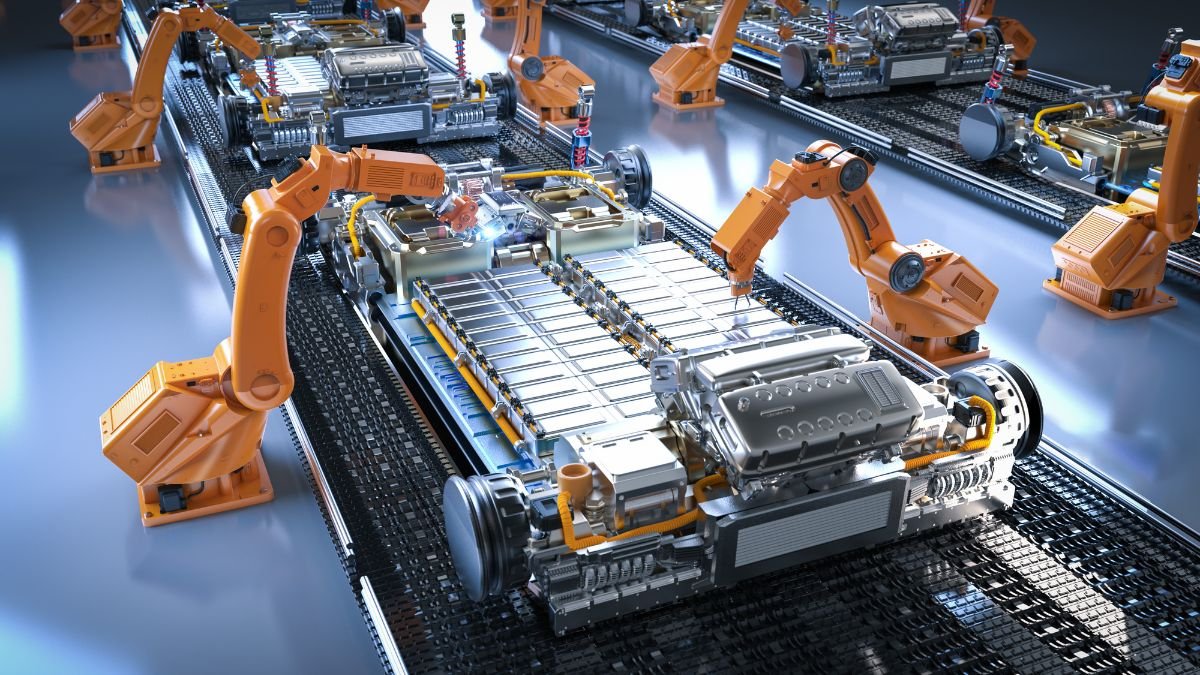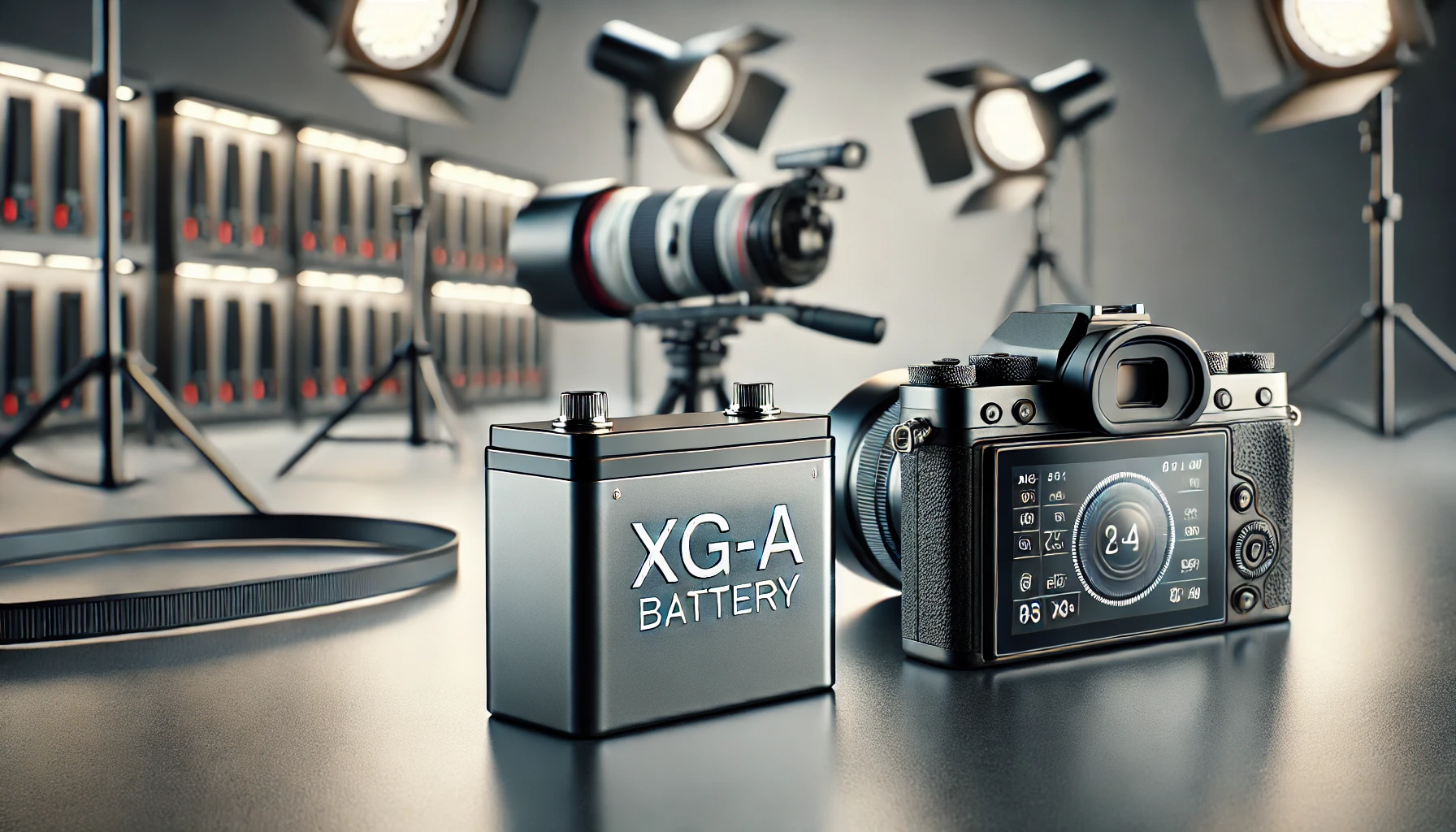Technology
What is Metal Creation AI?

Metal Creation AI is an innovative application of artificial intelligence (AI) and machine learning (ML) within the metal fabrication industry. This technology is revolutionizing how metal components are designed, produced, and inspected, enabling more efficient, precise, and cost-effective manufacturing processes.
Contents
Understanding Metal Creation AI

Metal creation AI refers to the integration of AI technologies in metal fabrication processes, such as cutting, welding, shaping, and assembling metal components. AI enables machines to simulate human intelligence, allowing them to perform tasks like data analysis, decision-making, and executing manufacturing operations with a high degree of precision. Machine learning (ML), a subset of AI, enhances these capabilities by allowing machines to learn from data, adapt to new information, and improve over time without explicit programming.
Key Applications of Metal Creation AI

- Optimized Production Processes:
AI is transforming metal fabrication by optimizing production workflows. Traditional processes often rely on manual labor and static calculations, which can be inefficient and prone to errors. AI systems, on the other hand, can analyze large datasets to determine the most efficient production parameters, minimizing waste and reducing costs. Machine learning algorithms can learn from past operations to continuously refine and improve the production process, enhancing productivity and reducing production times. - Predictive Maintenance:
One of the significant benefits of AI in metal creation is its ability to implement predictive maintenance. AI-powered systems use sensors and data analytics to monitor equipment conditions in real time, identifying potential issues before they result in equipment failures. This proactive approach reduces downtime, prevents costly repairs, and ensures that production runs smoothly without unexpected interruptions. - Enhanced Quality Control:
Quality control is a critical aspect of metal fabrication, and AI has significantly improved this area. AI-driven systems use computer vision and machine learning to detect defects and deviations in metal components that may not be visible to the human eye. This level of precision ensures higher-quality products and reduces the need for rework, saving both time and resources. - AI-Powered Design and Prototyping:
AI is not just limited to the production floor; it is also revolutionizing design and prototyping in metal fabrication. AI-based design software can generate complex designs optimized for specific parameters and requirements. The software leverages machine learning to learn from previous designs, leading to innovative and efficient new designs. This ability to quickly generate 3D models and simulate real-world scenarios speeds up the prototyping process, enabling manufacturers to bring products to market faster and more cost-effectively. - Supply Chain Optimization:
The use of AI extends beyond the production line into supply chain management. By analyzing historical and real-time data, AI can predict demand, optimize inventory levels, and automate ordering processes. This reduces inventory costs and ensures timely delivery of materials, contributing to more efficient operations across the board. - Safety Enhancements:
While AI significantly improves efficiency and quality in metal fabrication, it also enhances safety. AI-powered systems can identify potential safety hazards in real time, allowing for quick interventions that prevent accidents. Additionally, AI can automate dangerous tasks, reducing the risk to human workers and creating a safer work environment.
Benefits of Metal Creation AI

- Cost Reduction: By optimizing production and minimizing waste, AI helps metal fabrication companies reduce costs significantly. Predictive maintenance further lowers costs by preventing expensive breakdowns and extending equipment life.
- Increased Efficiency: Automated systems powered by AI can operate continuously, improving output without compromising quality. The ability to detect and correct errors in real-time enhances precision and reduces waste.
- Sustainability: AI’s optimization capabilities can lead to more sustainable manufacturing practices by reducing material waste and energy consumption.
Challenges and Considerations

Despite its numerous benefits, the adoption of AI in metal fabrication is not without challenges:
- Job Displacement: The integration of AI in manufacturing can potentially lead to job losses, as machines begin to perform tasks traditionally done by skilled workers. Companies must find ways to balance automation with human labor.
- Cybersecurity Risks: As metal fabrication becomes more digitized, it also becomes more vulnerable to cyber-attacks. Companies must implement robust cybersecurity measures to protect their AI and ML systems from threats.
- Initial Investment: The cost of implementing AI technologies can be a barrier for small to medium-sized enterprises. However, scalable AI solutions can be tailored to fit different budgets and operational needs.
The Future of Metal Creation AI
The future of metal creation AI is promising, with ongoing advancements likely to bring even more sophisticated and efficient systems. Predictive analytics, smart manufacturing, and AI-powered robots are set to become more integral in metal fabrication. However, this transition will require a shift in workforce skills, focusing on AI management, data analysis, and cybersecurity. Companies must invest in training and continuous learning to stay competitive in this evolving landscape.
Before Ending, I’ve noticed your interest in Our Blog. We have covered the topic “What are AI Web Rankers? Exploring AI-Powered SEO Tools for 2024,” which you can explore on our blog.
Post Disclaimer
The information contained in this post is for general information purposes only. The information, including images, is provided by What is Metal Creation AI?, and while we endeavor to keep the information accurate, we make no representations or warranties of any kind, express or implied, about the completeness, accuracy, reliability, suitability, or availability with respect to the website or the information, products, services, or related graphics contained on the post for any purpose. Please note that images used in this post may be included for entertainment purposes and do not necessarily represent factual or real-life scenarios.
Technology
What is XG-A Battery? Exploring Its Use in Photography and Advanced Energy Storage

Contents
- 1 Introduction to XG-A Battery
- 2 XG-A Battery in Vintage Photography
- 3 XG-A Battery as Advanced Energy Storage Technology
- 4 Benefits of Advanced XG-A Battery Technology
- 5 Quick Tips for Choosing XG-A Batteries
- 6 Pros and Cons of XG-A Battery Technology
- 7 Key Terms in XG-A Battery Technology
- 8 Highlighted Statistics on Advanced XG-A Battery Technology
- 9 Comparison: S76 Batteries in Photography vs. Advanced XG-A Batteries in Energy Storage
- 10 Frequently Asked Questions
- 11 Conclusion
Introduction to XG-A Battery
The XG-A battery has two main applications: powering vintage Minolta XG-A cameras and representing a new type of advanced energy storage solution. Each context offers unique uses, with the XG-A battery in photography providing essential power for 35mm cameras, while its modern counterpart addresses current demands for high-efficiency energy storage in electronics, electric vehicles, and renewable systems.
XG-A Battery in Vintage Photography
Minolta XG-A Camera Battery Requirements
The Minolta XG-A, a popular 35mm SLR camera from the early 1980s, relies on the S76 battery to power its electronic functions:
- Battery Type: Requires two 1.5V S76 silver oxide cells.
- Functions Powered: The batteries enable the camera’s light meter and electronic shutter functions.
- Availability: S76 batteries are commonly available, suitable for various electronic devices.
For vintage camera enthusiasts, understanding these requirements is crucial to maintaining and using the Minolta XG-A.
XG-A Battery as Advanced Energy Storage Technology
In recent years, XG-A battery has come to denote an advanced type of battery technology designed for modern energy needs. These batteries offer improved energy density, life cycles, and environmental friendliness.
Key Features of Advanced XG-A Batteries
- High Energy Density: Stores more energy in a compact design, ideal for limited-space devices.
- Extended Life Cycle: Withstands more charge-discharge cycles, reducing replacements.
- Fast Charging Capability: Allows for quicker charging times for enhanced convenience.
- Enhanced Safety: Built-in protections against overheating and short circuits.
- Eco-Friendly Materials: Uses more sustainable components, reducing environmental impact.
These features make advanced XG-A batteries appealing for applications that require sustainable, long-lasting power solutions, such as electric vehicles, renewable energy storage, and portable electronics.
Benefits of Advanced XG-A Battery Technology
The modern XG-A battery offers several advantages over traditional lithium-ion batteries:
- Sustainability: Eco-friendly components align with global sustainability goals.
- Efficiency in Power Storage: High energy density ensures powerful, compact solutions.
- Cost Savings Over Time: Extended life cycle reduces the need for frequent battery replacements.
Quick Tips for Choosing XG-A Batteries
- For Photography: Ensure you have S76 batteries on hand if using a Minolta XG-A camera.
- For Energy Storage Needs: Look for XG-A batteries if seeking high-density, eco-friendly options.
- Check Compatibility: Confirm battery type and voltage requirements for your specific device.
Pros and Cons of XG-A Battery Technology
| Pros | Cons |
|---|---|
| High energy density and compact size | Potentially higher initial cost |
| Eco-friendly materials | Limited availability in some markets |
| Long life cycle and reduced replacements | Not fully established in all applications |
Key Terms in XG-A Battery Technology
- Energy Density: The amount of energy stored in a given volume or mass of battery.
- Life Cycle: Number of charge-discharge cycles a battery can endure before performance declines.
- Eco-Friendly Components: Materials and designs that have a lower environmental impact.
Highlighted Statistics on Advanced XG-A Battery Technology
- Energy Density Improvement: Advanced XG-A batteries are estimated to offer up to 30% more energy density compared to lithium-ion batteries.
- Charge-Discharge Cycles: Designed to endure up to 2,000 cycles, extending battery life significantly.
- Carbon Footprint Reduction: Estimated 20% lower carbon emissions in production compared to traditional batteries.
Comparison: S76 Batteries in Photography vs. Advanced XG-A Batteries in Energy Storage
| Feature | S76 Battery (Photography) | Advanced XG-A Battery (Energy Storage) |
|---|---|---|
| Application | Powers vintage Minolta XG-A camera | Used in modern devices and renewable systems |
| Energy Density | Standard for single-use batteries | High, suitable for space-efficient applications |
| Life Cycle | Single-use, replace when depleted | Extended, up to 2,000 cycles |
| Eco-Friendliness | Standard battery disposal required | Uses sustainable materials, lower environmental impact |
Frequently Asked Questions
What is the purpose of an XG-A battery in photography?
The XG-A battery refers to S76 batteries used in Minolta XG-A cameras, powering essential functions like the light meter and shutter.
How is XG-A battery technology different from traditional lithium-ion batteries?
Advanced XG-A batteries offer higher energy density, extended life cycles, and eco-friendly materials, making them more efficient and sustainable.
Are XG-A batteries widely available?
S76 batteries for the Minolta XG-A camera are commonly available, while advanced XG-A energy storage solutions are emerging but may not be as accessible in all markets.
Can I use any other battery in place of an S76 for the Minolta XG-A camera?
It is best to use S76 or equivalent 1.5V silver oxide batteries for optimal performance in Minolta XG-A cameras.
Conclusion
The XG-A battery serves distinct purposes depending on the context. For vintage photography, it powers the Minolta XG-A camera, while in modern energy storage, it represents a next-generation battery solution with high energy density and sustainability benefits. Understanding these applications allows users to appreciate both the historical and contemporary value of the XG-A battery.
Post Disclaimer
The information contained in this post is for general information purposes only. The information, including images, is provided by What is XG-A Battery? Exploring Its Use in Photography and Advanced Energy Storage, and while we endeavor to keep the information accurate, we make no representations or warranties of any kind, express or implied, about the completeness, accuracy, reliability, suitability, or availability with respect to the website or the information, products, services, or related graphics contained on the post for any purpose. Please note that images used in this post may be included for entertainment purposes and do not necessarily represent factual or real-life scenarios.
Technology
What is APL66K? Amazon’s Framework for Voice and Visual Integration

Contents
Introduction
APL66K is an advanced framework developed by Amazon within the Alexa Presentation Language (APL) ecosystem, aimed at enhancing user experiences on Alexa-enabled devices. By integrating voice commands with interactive visual content, APL66K allows developers to create immersive applications on platforms like the Amazon Echo Show and Fire TV. With streamlined syntax for data handling and cross-industry adaptability, APL66K is a key tool in crafting engaging, voice-activated user interfaces.
Key Features of APL66K
1. Streamlined Syntax for Data Processing
APL66K employs an array-based coding style that enables concise and efficient programming. This streamlined syntax is particularly useful for data-intensive tasks common in artificial intelligence (AI) and data science, allowing developers to create complex, responsive applications with less code.
2. Integration of Voice and Visuals
One of APL66K’s standout features is its ability to combine voice commands with dynamic visuals. This integration supports an immersive user experience by providing real-time visual feedback in response to voice interactions, making it especially suitable for Alexa-enabled devices with screens.
3. Cross-Industry Applications
APL66K’s efficient data processing and handling make it adaptable across a variety of industries, including finance, healthcare, and logistics. It’s commonly used for tasks like predictive analytics, inventory management, and data visualization, allowing companies to optimize their operations through interactive, voice-driven applications.
Learning and Implementation
To support developers, Amazon offers comprehensive tutorials and documentation to help integrate APL66K into Alexa skills. This support allows developers to design and implement skills that merge voice interactions with visual elements, contributing to the next generation of user interfaces.
Challenges and Future Prospects
While APL66K is a powerful tool, its unique syntax may pose a learning curve for developers new to array-based coding. However, Amazon’s commitment to expanding APL66K’s capabilities, including potential AI integration and user interface improvements, highlights its long-term value in interactive voice experiences.
Pros and Cons of APL66K
| Pros | Cons |
|---|---|
| Streamlined coding for efficient data processing | Array-based syntax may have a learning curve |
| Enhances user engagement with voice-visual integration | Limited to Alexa-enabled devices with screens |
| Adaptable across various industries | Full capabilities require technical expertise |
| Supported by extensive Amazon documentation and tutorials | Specific to Amazon’s Alexa ecosystem |
Benefits of Using APL66K
- Enhanced User Engagement – By combining voice commands with visual feedback, APL66K enables more immersive experiences on Alexa-enabled devices.
- Efficient Data Handling – Its array-based syntax simplifies complex programming, making it efficient for data-driven applications.
- Cross-Industry Relevance – APL66K supports applications across finance, healthcare, logistics, and other industries, helping optimize processes.
- Continuous Amazon Support – Amazon provides detailed guides and resources, facilitating a smoother learning process for developers.
- Future-Ready Framework – With potential AI integration and UI enhancements on the horizon, APL66K is positioned for long-term relevance.
Definition Box: Key Terms
- Alexa Presentation Language (APL): Amazon’s language for creating visual and audio displays for Alexa-enabled devices with screens. Learn more on Wikipedia.
- Array-Based Coding: A programming style that processes data in arrays, often making code more efficient and concise for tasks involving large datasets.
- Predictive Analytics: A technique in data science used to forecast future trends based on historical data, commonly used in finance and logistics.
Quick Tips for Implementing APL66K
- Start with Amazon’s Tutorials: Amazon’s extensive documentation provides step-by-step guidance, making it easier to get familiar with APL66K’s syntax and features.
- Use for Data-Driven Tasks: APL66K’s array-based coding is particularly suited for applications requiring significant data processing.
- Test on Screen-Enabled Devices: Ensure the intended visuals render accurately on Alexa-enabled devices with screens, such as the Echo Show.
- Explore Cross-Industry Use Cases: Identify specific use cases in your industry, such as inventory management or customer analytics, where APL66K’s data capabilities can be beneficial.
- Stay Updated on APL66K Developments: Amazon frequently updates APL tools, so check for new features and enhancements that can extend APL66K’s functionality.
Comparison Table: APL66K vs. Standard Alexa Skills Development
| Feature | APL66K | Standard Alexa Skills Development |
|---|---|---|
| Data Handling | Array-based, ideal for data-intensive tasks | More limited for complex data handling |
| User Engagement | Integrates voice and visuals for immersion | Primarily voice-based with minimal visual feedback |
| Cross-Industry Applications | Applicable to finance, healthcare, logistics | Generally consumer-focused |
| Learning Curve | Moderate, array-based syntax | Lower, uses simpler scripting approaches |
| Device Compatibility | Alexa devices with screens | Compatible with all Alexa devices |
Frequently Asked Questions (FAQ)
What is APL66K?
APL66K is an advanced framework within Amazon’s Alexa Presentation Language (APL), designed to combine voice commands with dynamic visuals for more engaging user experiences.
What devices are compatible with APL66K?
APL66K is compatible with Alexa-enabled devices that feature screens, such as the Amazon Echo Show and Fire TV.
How does APL66K improve data handling?
APL66K uses an array-based coding style, which allows for efficient data processing, making it suitable for applications in data-intensive industries.
In which industries is APL66K useful?
APL66K can be applied across multiple sectors, including finance, healthcare, and logistics, where it supports data visualization, predictive analytics, and other complex tasks.
What are the future prospects of APL66K?
Future enhancements to APL66K may include AI integration and user interface improvements, expanding its capabilities in creating advanced interactive experiences.
Conclusion
The Apogee Alta F50100 represents a key advancement in the Alexa Presentation Language, allowing for an enhanced blend of voice and visual integration in applications. With its array-based syntax, APL66K offers streamlined data processing and supports immersive user experiences on Alexa-enabled devices with screens. Although the framework has a learning curve, particularly with its unique coding style, the potential for cross-industry applications and future improvements positions it as an essential tool in voice and visual technology development. Through APL66K, Amazon continues to push the boundaries of interactive design, giving developers new tools to build engaging and efficient applications for various professional and consumer markets.
Post Disclaimer
The information contained in this post is for general information purposes only. The information, including images, is provided by What is APL66K? Amazon’s Framework for Voice and Visual Integration, and while we endeavor to keep the information accurate, we make no representations or warranties of any kind, express or implied, about the completeness, accuracy, reliability, suitability, or availability with respect to the website or the information, products, services, or related graphics contained on the post for any purpose. Please note that images used in this post may be included for entertainment purposes and do not necessarily represent factual or real-life scenarios.
Business
AML Solutions – A Prevention Against the Disguise of Illegal Money
AML solutions are a set of rules designed to prevent money laundering and financing of terrorism. Compliance is crucial to maintain the credibility of businesses.

The purpose of anti-money laundering regulations and standards is to stop illegal funds from being passed off as genuine. The process of disguising illegal funds, narcotics, and fraud as originating from a legitimate source is known as money laundering.
Additionally, AML solutions are tactics used by financial institutions and enterprises to stop theft and illicit activity. By adhering to the guidelines established by the government, these solutions support the integrity of the companies and assist the organizations in identifying possible dangers from the clients. These three steps make up money laundering: placement, layering, and integration.
Contents
Significance of AML Solutions in Financial Institutions
These solutions are highly recommended to fight financial thefts and maintain the integrity of businesses. These can hold the customers accountable before committing the crime. Here is why the AML solution is crucial:
- These are used to prevent fraud by detecting the suspicious activities of the customers before they harm the economy.
- These help in maintaining regulatory compliance. If the organizations do not abide by the regulations, it can result in a heavy sanction or the loss of reputation.
- There are several organizations which can be seen involved in money laundering. These solutions help maintain the credibility and reliability of the businesses.
- They help prevent the risks beforehand by keeping a check on the customer’s activities.
Global AML Regulations and Standards
There are several rules and standards set by the government and the higher authorities. These solutions are not the same for every country. It depends on the laws and crime rate of every other country. Some of the major AML solution frameworks are:
- The Financial Action Task Force (FATF)
FATF is a governmental body that provides rules and regulations for averting the financing of terrorism and money laundering. This AML service provider sets the standards that are meant to secure businesses and monitor the compliance of the organizations towards it. 40 recommendations by FATF cover everything from customer’s due diligence to reporting of suspicious transactions. The institutions that fail to comply with the rules provided by FATF, will be added to their blacklist and their reputation will be at risk.
- The Bank Secrecy Act
In the USA, companies are required to follow the set standards by the Bank Secrecy Act. It provides effective solutions that can combat money laundering by regularly identifying the customers, and their suspicious activities, and maintaining useful records for the future.
- The European Union
This is an industry-leading AML solution that provides its own rules and regulations to prevent the financing of terrorism. It allows the member states to set their laws and regulations to fight money laundering. It has tackled several money laundering cases effectively by adapting itself according to the prevailing risks.
- The Financing Crimes Enforcement Network
It is a department in the US that passes several laws including AML screening solutions for financial institutions. It plays a crucial role in maintaining the integrity of the organizations and preventing them from losing their reputation.
- The United Nations
The UN is also an AML solution provider that plays a vital role in mitigating the risk of money laundering. There are many other frameworks like the IMF and the World Bank that support the United Nations and strengthen the laws to diminish money laundering and other financial thefts.
Difference Between AML and CTF
Despite being two distinct concepts, they both aim to prevent financial theft. As previously said, AML relates to the disclosure of black money that appears to be lawful and utilized in a legitimate economy. Its goal is to stop criminals from passing off illicit funds as legitimate in the economy. Drug money, corruption, and tax evasion are among its goals.
Conversely, CTF (Counter-Terrorist Financing) stops money from going to terrorist groups that carry out violent acts or have the potential to harm the economy. Its primary goal is to stop terrorist groups from receiving funding to stop extremist operations.
Conclusion
Money laundering can not be overstated when it comes to the security of financial institutions. Compliance with AML solutions is highly recommended because it can affect the integrity of the businesses. Not only financial institutions are compelled to comply with the rules but it is also crucial for other organizations as well to maintain their reliability in the market.
Post Disclaimer
The information contained in this post is for general information purposes only. The information, including images, is provided by AML Solutions - A Prevention Against the Disguise of Illegal Money, and while we endeavor to keep the information accurate, we make no representations or warranties of any kind, express or implied, about the completeness, accuracy, reliability, suitability, or availability with respect to the website or the information, products, services, or related graphics contained on the post for any purpose. Please note that images used in this post may be included for entertainment purposes and do not necessarily represent factual or real-life scenarios.
-

 Entertainment10 months ago
Entertainment10 months agoWhat is Masqlaseen? A Complete Overview
-

 Entertainment9 months ago
Entertainment9 months agoWhat is Moye Moye? Understanding the Serbian Phrase and its Meaning
-

 Entertainment9 months ago
Entertainment9 months agoWhat is soymamicoco? A Complete Guide
-

 Technology8 months ago
Technology8 months agoWhat is an XCV Panel? A Guide to Its Uses and Benefits
-

 Entertainment8 months ago
Entertainment8 months agoIs Ztec100.com Your One-Stop Shop for Digital Solutions?
-

 Business8 months ago
Business8 months agoWhat is Roadget Business?
-

 Entertainment8 months ago
Entertainment8 months agoWhat is 06shj06? – Uncover The Mystery
-

 Entertainment8 months ago
Entertainment8 months agoWho is Elon Musk? – Unveiling the Visionary Entrepreneur




